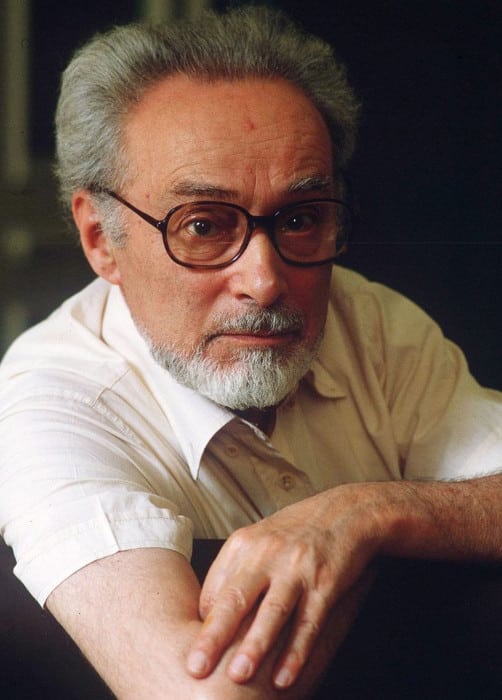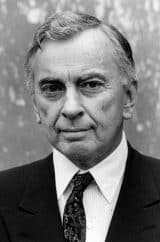 A Brilliant Mind
A Brilliant Mind
Primo Levi started his professional life as a chemist and, had his world not been steamrollered by tragic events, would probably have happily remained one. He was, unfortunately, a Jew in Italy. From 1938 and especially once Mussolini signed his pact with Hitler, he had to disguise his identity to work and live in peace.
Most casual readers tend to associate great writing with creativity. There’s certainly plenty of that to be found in top Primo Levi books. That’s only a small part of the equation, though: the logical, analytical mindset that science requires is at least as important when it comes to stringing words together in a coherent fashion.
The Courage of His Convictions
When the shadow of Fascism overtook Europe in the 1930s and 40s, a few fled, many hid, most suffered…and a small minority chose to fight. Levi managed to avoid the worst until the middle of 1943, when Germany occupied most of Italy.
His first act was to rescue his mother and sister, who had gone into hiding. He then proceeded to join the Italian resistance. Unfortunately, he was not cut out for the life of a guerrilla and was soon captured. Still, the moral integrity his actions demonstrated, then and later, shines through in the best books by Primo Levi.
Best Primo Levi Books
| Photo | Title | Rating | Length | Buy |
|---|---|---|---|---|

|
Survival in Auschwitz | 9.98/10 | 187 Pages | Check Price On Amazon |

|
The Reawakening | 9.86/10 | 239 Pages | Check Price On Amazon |

|
The Drowned and the Saved | 9.84/10 | 208 Pages | Check Price On Amazon |

|
The Periodic Table | 9.76/10 | 240 Pages | Check Price On Amazon |

|
If Not Now, When? | 9.68/10 | 384 Pages | Check Price On Amazon |
Survival in Auschwitz (If This Is a Man)

 Stands Out from the Crowd
Stands Out from the Crowd
There’s no shortage of reading material on the Holocaust. These range from scholarly histories that try to be as dry as their bloody subject material permits to deeply moving, insightful personal accounts like Man’s Search for Meaning.
Though the author spent less than a year in Auschwitz itself, it’s not really a competition about who suffered the most. (Levi only barely lived through the experience in any case.) Survival in Auschwitz deserves its place as one of the best-selling Primo Levi books ever.
Written Like a Lab Report, Yet All the More Powerful for It
In tone, the book is simply an objective, restrained, almost emotionless retelling of events. These start with Levi being captured; some time later, he and several hundred other Jewish-Italian prisoners are told that they are to be transported from the relative comfort of an Italian concentration camp to Auschwitz, a name that means nothing to them.
There are no rousing speeches, self-pity, or even outright hatred for his captors to be found. If anything, this detachment and clarity of thought amplify both the horrors the prisoners endure and the compassion, resilience, and spirit they show as they try to retain some semblance of human decency.
No Final Judgment
Among all the accounts of the Holocaust, few provide any cogent answers to the question “Why?”, how something like this could ever occur. We don’t need to count feeble, unsatisfying attempts like “the wolves came to lead the sheep” or even “brainwashing and stuff”.
To Levi, this lack of explanation is inevitable. Even if to understand is to forgive, the horrors of ethnic cleansing on an industrial scale are simply beyond both reason and justification. The book just ends when the Soviet Army draws near and the Nazi guards abandon the camp, leaving Levi and his few comrades who can still walk to try and save as many other prisoners as they can. If you’re looking for some kind of universal insight into the psychology of totalitarianism rather than a disturbing, uplifting, and above all human tale, this isn’t the book for you.
The Reawakening (The Truce)

 The Sequel
The Sequel
Though not originally planned as such, Survival in Auschwitz became the first book in a trilogy rounded out by The Drowned and the Saved. Taken together, they tell a truly epic story and can easily be considered to be Primo Levi’s three best books.
In The Reawakening, Levi and his fellow candidates for extermination, starving, sick, and in many cases shadows of their former selves, are liberated by the Red Army. He’s still a very long way from his beloved hometown of Turin, though, and it’s not like he can just hop on a plane. Over the next ten months, he journeys through much of Eastern and Central Europe before finally arriving home, disfigured by starvation and wearing a ragged Soviet uniform.
Life After Auschwitz
Though conditions in the death camp were certainly horrific, he realizes that few people have escaped the war unscathed. He stares out at ruined cities from his train carriage while speaking to other former prisoners and Russian soldiers who are almost as traumatized as they are. Many of these encounters are poignant, some are surprising and even funny, but all of them are written with a deep understanding of the human condition.
The liberated prisoners are treated impartially: having become accustomed to surviving by any means necessary and still feeling in danger of their lives, they’re not necessarily saints. Not all of them were sentenced to Auschwitz and other camps purely due to their race or religion, either: we meet several psychopaths and lunatics along the way.
A Residue of Hope, Faith, and Compassion
The Reawakening isn’t merely a story about how hard it was even for those who survived the extermination camps. If that were the case, it would have been little more than a reprise of Survival in Auschwitz instead of one of the best-rated Primo Levi books.
It’s barely even a coherent, unified narrative. Levi wanders hither and yon, subject to events beyond his control and the whims of the Soviet bureaucracy. One event follows another and is retold just how it happened. Throughout it all, however, and in spite of the lingering terror that clings to Levi and his companions like a shadow, the reader realizes that their essential humanity has not been extinguished and is simply waiting on the reawakening hinted at in the title.
The Drowned and the Saved

 The Non-Identical Triplet
The Non-Identical Triplet
Thematically, this collection of essays follows seamlessly on The Reawakening. However, instead of a series of personal recollections, it’s more philosophical in tone and attempts to come to grips with Fascism and the horrors it produces.
It’s worth noting that Survival in Auschwitz was first published in 1947 and The Reawakening in 1963, but it took Levi until 1986 to complete The Drowned and the Saved – Primo Levi’s last and best book, at least in some ways.
Informed But Objective
In this book, we’re again the beneficiaries of Levi’s scientific detachment. As in the previous two and in fact all of the best Primo Levi books, the author carefully avoids blind hatred of the Nazis and their various hangers-on, mushy celebrations of victimhood, and self-pity.
Instead, he examines the issues surrounding power, collaboration, violence, and guilt with open eyes and a surprising degree of warmth. He even tries bravely to be even-handed in his analysis of the motives and intentions of those he rightfully despises rather than resorting to stereotypes. He stops short of actually placing himself in their shoes, though: gazing into the abyss is not for everyone.
Loitering on the Edge of Understanding
Another temptation Levi scrupulously avoids is trying to present a sweeping epiphany on a subject that is, by his own admission, beyond his and perhaps all moral people’s understanding. There is no simple yet all-encompassing explanation of Fascism, at least not in The Drowned and the Saved.
The two best autobiographical novels by Primo Levi introduced us to the horrors of Fascism on a deeply personal level. They would have been tough acts to follow in any case, never mind with a philosophical tract. In the end, these eight essays leave the reader with more questions than answers. Even so, this book can better equip us to understand how extreme ideologies can end up permeating a society, even in modern times.
The Periodic Table

 Chemistry as Motif
Chemistry as Motif
Each of the twenty-one short stories in this collection is named after a chemical element, and many of them reference Levi’s own experiments with Bunsen burners and smelly substances. Don’t worry, though: you can understand what’s going on even if you never took science in high school.
Allusions to his first love, chemistry, aren’t a major feature of the most popular Primo Levi books. Like the Auschwitz Trilogy, what makes The Periodic Table so relatable is simply that these tales are drawn from the author’s own life and experiences. Interwoven with made-up stories, these are simply yet beautifully told, making this the best Primo Levi book in my eyes.
The Man Behind the Mask
Despite the pain caused by remembering his time as a prisoner of the Fascists, this author didn’t flinch from describing details of the most harrowing suffering imaginable in several of the best Primo Levi novels. In fact, he seems to have had a kind of compulsion to “bear witness” to the evils he had witnessed.
Yet, for all his fame in Europe and – belatedly – North America, Levi always remained a somewhat shy, unassuming, and even secretive individual. His children and mother, for instance, are never even mentioned in The Periodic Table. Yet, reading between the lines, this book gives us the clearest picture of who he really was. Beyond the trauma that may have eventually led to his death, you’ll find a remarkably humble, sincere, and above all kind personality reflected in this work.
About Science, Peripherally
Though The Periodic Table is sometimes described as a science book, it’s not meant to teach anyone about chemistry. Instead, Levi uses science as a vehicle to contrast the verifiable nature of the empirical method with propaganda and what is today called “fake news”. You won’t get far arguing with physics, but in the world of politics, a believable lie is just as useful as the truth.
He also uses chemistry as a metaphor for the blending and mixing of Jewish and Christian cultures. Overall, though, this is not a textbook but rather a kind of idiosyncratic and often funny personal memoir, far more approachable than most of the Primo Levi book list.
If Not Now, When?

 A Story of Reluctant Soldiers
A Story of Reluctant Soldiers
Though Levi liked to hike and ski, he was never the most physically adept person. He also lacked all military training except that which he received as a member of the virtually compulsory Italian Fascist youth organization. His career as a partisan fighter was therefore short and unremarkable.
The experience did, however, give him an insight into life in an irregular force behind enemy lines. For the partisans, lacking food, adequate shelter, and communication with the outside world, surviving and maintaining their sanity was almost as difficult as in a Nazi extermination camp.
A Snapshot of History
With a few details changed, this could be the story of any of thousands of people who found themselves stranded in wartime Europe. A Russian Jew and watch repairman, Mendel Dajcher, joins the army to defend his homeland. The conflict soon becomes personal for him when his family and, in fact, entire village are wiped out by the advancing Germans.
He is then separated from his comrades during a battle and thrust into the turbulent world of the resistance. This is composed of numerous splinter groups who occasionally clash with each other as well as the occupiers. Some fight for their country, some for revenge, others simply for their lives; a few are little more than bandits doing their best to survive in the chaos. It should be noted that, in many countries, the Nazis had no shortage of volunteers for their own militia, a fact Levi doesn’t ignore.
Tense Adventure, Told Psychologically
Along with The Monkey’s Wrench, this is perhaps the best “pure” Primo Levi novel, without much autobiographical content. It’s also full of action. Whereas Levi spent much of the war as either a victim or a powerless observer, the characters in this book are able to play a meaningful part in choosing their destiny.
Unlike Alan Furst, who writes novels set against similar backdrops, Primo Levi’s strength is not intrigue and energy but his great insight into the human soul. If Not Now, When? is less about war than the people caught up in it and what keeps them going – in this case, ultimately reaching the Holy Land.
Moments of Reprieve

 Sketches from Hell
Sketches from Hell
Some people like to say that a person’s true character is exposed by their actions during the most difficult of times. If this is true, Moments of Reprieve ranks among the most important Primo Levi books.
It takes the form of fifteen short stories or character vignettes based on the author’s recollections of his fellow prisoners in an extermination camp. In a sense, it forms a kind of addendum to Survival in Auschwitz and The Reawakening.
The Will to Survive, the Capacity to Remain Human
Since this collection was completed about three decades after the actual events, the moments Levi chose to share were those that made a lasting impression on him.
Many depict acts of compassion, such as a starving man sharing what little food he’s been able to scrounge. Others revolve around seemingly trivial moments of human interaction that are nevertheless deeply meaningful to those involved, while a few relate what lengths people will go to when in extremis.
Bite-Sized Pieces
Something Primo Levi book reviews often point out, only to be ignored, is that reading a first-person description of genocide is emotionally draining. Even with Levi’s light touch and skill at storytelling, this is inevitable.
Moments of Reprieve is therefore a good choice if you’re not quite ready to take on a book as heavy as Survival in Auschwitz. Breaking up the horror into fairly short, stand-alone stories makes for a much less demanding read. Note that this collection is an abridged version of the Italian original (Levi’s relationship with American publishers was always a little ambivalent); if you want more stories like these, you’ll have to get A Tranquil Star as well.
The Monkey’s Wrench

 The Chemist’s Tale
The Chemist’s Tale
In much the same vein as The Periodic Table, The Monkey’s Wrench is semi-autobiographical, though a complete novel instead of mostly separate stories. This book also revolves partly around Levi’s former career as an industrial chemist, both as part of the plot and to some extent as metaphor.
Some readers will be bored by the detailed descriptions of, for example, how a particular breakdown at a car factory got fixed, or an offshore oil rig ended up being stabilized. You generally won’t read Primo Levi books in order to see if a career in science and engineering is for you. All the same, these details do add a bit of authenticity, and the funny parts of the book more than make up for the slow pacing here and there.
Primo Levi in a Good Mood
This is a story about, and narrated by, craftsmen. Levi is one himself, of course, in his own field: the storytelling in The Monkey’s Wrench is superb. He does a great job of underscoring the satisfaction to be found in diligent, meaningful work; overcoming setbacks as needed and finally creating something of value.
Fortunately, Auschwitz and the second world war are barely mentioned in this book. This is a story (or, more accurately, a series of somewhat disjointed accounts) about life and finding joy in the mundane instead of the abstract. For this reason, The Monkey’s Wrench is an accessible book for readers who’d like to see Levi’s skill at creating characters and natural-sounding dialogue, but who aren’t ready or thick-skinned enough to take on some of his heavier works.
Final Thoughts
It’s unlikely that we’ll ever see a new book by Primo Levi; though he died in 1987, supposedly by suicide, his most recent work was published posthumously in 2011. His last novel, The Double Bond, remains unfinished. People continue to struggle to understand this profound thinker, though. If you like, you can choose to read one of his biographies (I believe the latest book on Primo Levi is the one by Marco Belpoliti).
Personally, though, I think that reading should be a matter of individual enjoyment and meaning, not hairsplitting literary analysis. You’ll find plenty of both the former in the books above, along with a comforting kind of optimism in humanity that stands in stark contrast to his wartime experiences.
Michael Englert
Michael is a graduate of cultural studies and history. He enjoys a good bottle of wine and (surprise, surprise) reading. As a small-town librarian, he is currently relishing the silence and peaceful atmosphere that is prevailing.





